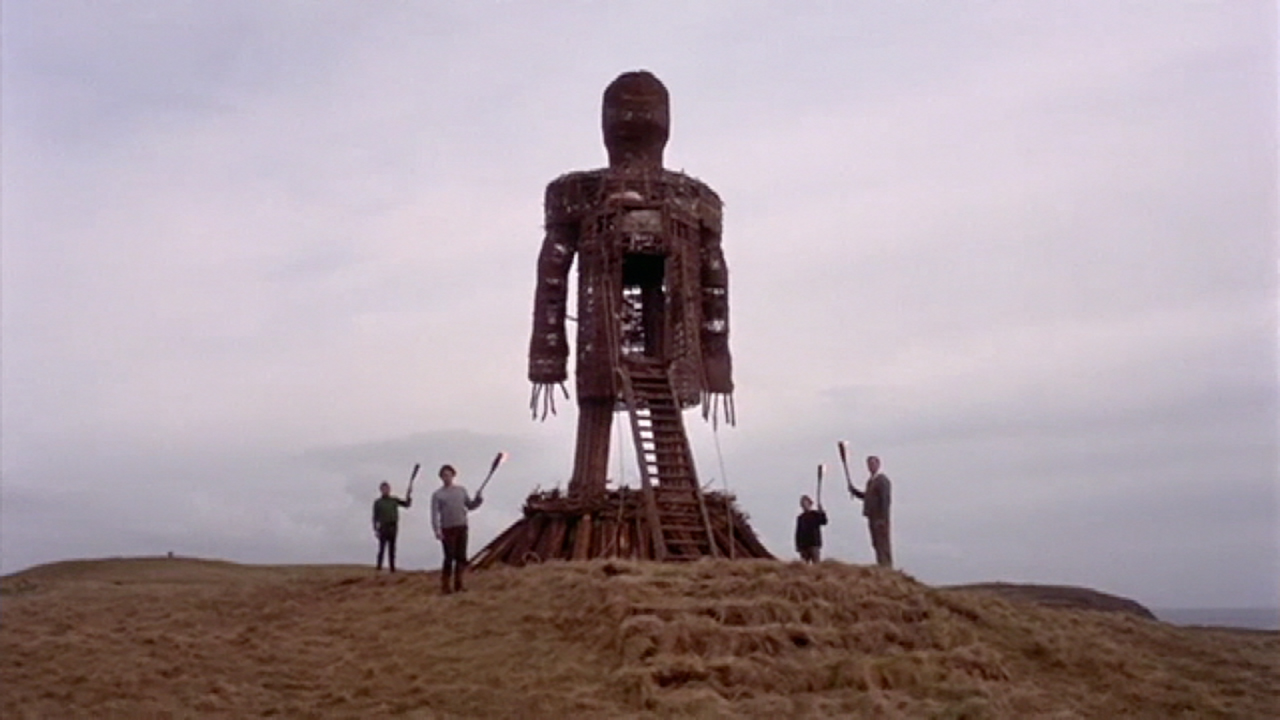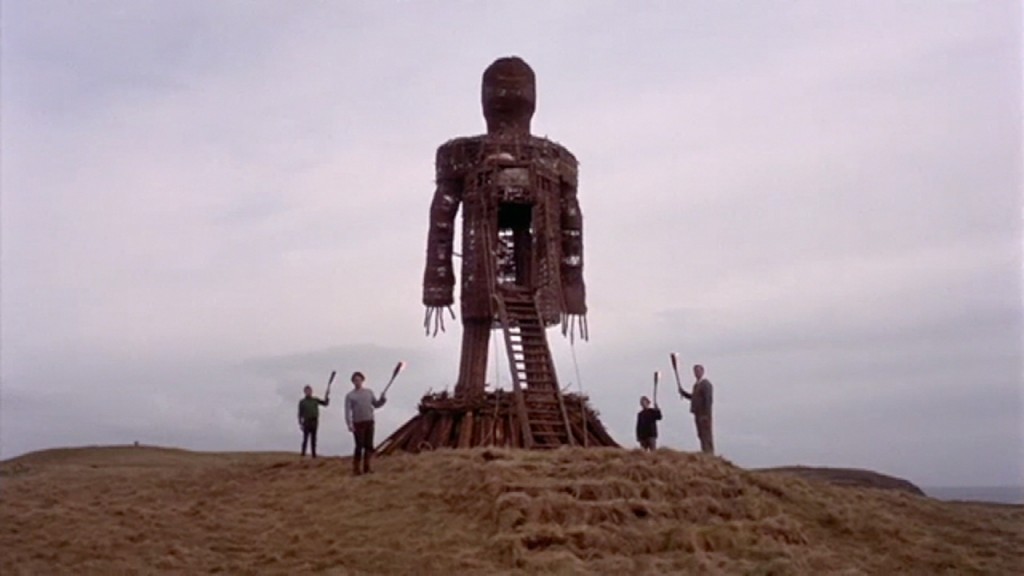What is the sound of fear? Over the years, musicians and composers have tried various things, and certain tropes have emerged: the stabbing strings, the gothic grandeur, the discordant noise, or the Theremins and strange electronic sounds. But back in 1973, Paul Giovanni and Magnet took a completely different path, tapping into an altogether more earth vein of horror, capturing the cruel majesty of The Wicker Man.
For many people, The Wicker Man is one of the towering giants of horror (if you’ll pardon the pun), a masterpiece of sustained dread that digs deep into our hearts to unearth a visceral and primal fear. Challenging notions of religious orthodoxy and folk history through the lens of a detective story, the film is short on sharp frights, but big on creeping unease. After a missing girl is reported on the remote Scottish island of Summerisle, policeman Neil Howie (Edward Woodward) travels to the apple-growing colony, encountering a society that has forsaken the Christian values he holds so dear to his heart in favour of a strand of paganism. Under the auspices of the enigmatic Lord Summerisle (Christopher Lee), the islanders lead Sgt Howie on a strange journey, thwarting his investigation at every turn, before leading his time on the island to a terrible conclusion.
Throughout the film, the viewer experiences an unsettling feeling that what the islanders are doing is strange, but somehow entirely justified. These are their ways, their traditions, and their strangeness lies in the distance between them and what we are used to, rather than the actions they perform. The soundtrack captures this sensibility perfectly, a haunting collection of folk songs and ballads that root the culture of the islanders in something older and darker than the modern age that Sgt Howie represents, despite the timelessness of his Christian beliefs.
Rather than just providing a musical backdrop to the film, the soundtrack by American playwright and folk band Magnet becomes a character in the film itself, frequently performed by the islanders as they sing their songs and jigs. Acoustic guitars, recorders, jaw harp, and concertinas make up the sounds, with the occasional sharp twang of the zither used to further unsettle the viewer. Having the characters perform the songs occasionally gives the film the feel of a musical, with all the major characters taking the lead at some point in the film, their songs representing a crucial aspect of their faith and beliefs.
The opening song, ‘Corn Rigs’, sung by Giovanni himself, provides a strangely relaxing start to the film, a gentle folk ballad chronicling the consummation of young love, whilst Sgt Howie pilots his seaplane over the highlands and islands. Rather than setting up a tale of terror and tragedy, The Wicker Man begins with a sense of romantic tradition, of rites that are as old as the earth. It is the perfect signpost for what is to come.
As the story progresses, Sgt Howie encounters all manner of sensual depravity, from bawdy sing-songs in the local alehouse, to the erotic seduction of ‘Willow’s Song’, arguably the musical highlight of the entire film. As Willow, the landlord’s daughter (who has just been eulogised in a particularly bawdy song) leads Sgt Howie to his room, she retires to her own adjacent room, stripping naked, and performing some kind of ritualistic dance, whilst young couples fornicate in the fields. The trembling tension of the song is incredible, a piece of music that somehow manages to be tender and threatening at the same time. As Willow’s dance rises in its intensity, so too does the panic and fear of the chaste Sgt Howie, fighting against his own personal demons of the flesh. All the while, the islanders perform their song in hushed reverence, aware that something sacred is taking place.
Other songs capture the beliefs of the islanders, articulating the ancient philosophies that have been passed onto them by Lord Summerisle and his ancestors. As we are drawn further and further into the maze, these songs take on a frightening resonance, a suspicion that whatever has happened here is not quite what it seems. These songs, these ancient traditions, are a part of their life, and in this world, it is Sgt Howie who is the deviant.
In the film’s climax, the islanders perform their last song, a celebration of what is to come, and a lament for the times past. As he meets his fate, Sgt Howie finds himself fuelled by the power of his God, his lungs filling as he sings ‘The Lord is my Shepherd’. Then the sun sets on Summerisle.
Even after all these years, the power of this film has not diminished, and in no small part is this due to the incredible music contained on its soundtrack. As filmmakers struggle to find the perfect horror, it is little wonder that few of them have ever tried to do it this way. After all, you can’t improve upon perfection. Steven Rainey







